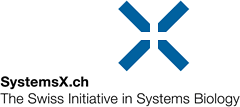ROBUSTYEAST
Optimizing metabolic regulation in yeast production strains for dynamic conditions
Microbial strains used in the biotechnology industry need to produce their biotechnological products at high yield, while at the same time they are desired to be robust to the intrinsic nutrient dynamics of large-scale bioreactors, most notably to transient limitations of carbon and oxygen. However, the engineering principles for robustness of metabolism with respect to nutrient dynamics are not yet well understood. The ROBUSTYEAST project aims to reveal these principles for microbial strain improvement in biotechnology applications using a systems biology approach. This will contribute to establishing evolutionary optimization protocols for making microbial production strains robust against dynamic nutrient conditions.
The consortium will experimentally study the robustness of Saccharomyces cerevisiae undergoing the dynamics associated with two cyclic nutrient transitions that are each of major relevance to industry: repeated cycles of glucose and ethanol growth, and of aerobic and anaerobic growth. We shall monitor the physiological changes during the evolutionary adaptation of yeast to those transitions, using laboratory-evolution in lab-scale bioreactors (chemostat mode). By combining this data with computational modeling we shall identify the metabolic features that make yeast robust to these industrially relevant condition cycles. The theoretical and computational approaches that the consortium will develop involve optimization methods applicable to metabolism transition from one steady state to the next via dynamic regulation.
We shall iterate experiments and modeling to improve our models based on experimental data, identify new measurements critical to improving our understanding, and to finally identify key regulatory mechanisms for a robust metabolism of S. cerevisiae given changes in glucose, ethanol and oxygen concentrations. The robustness of metabolic regulation under dynamic conditions will be evaluated from the kinetic models, and the regulatory interactions that confer such robustness will be determined.
Project consortium coordinator: Jun.-Prof. Steffen Waldherr, Otto von Guericke University Magdeburg, Germany
Swiss consortium partner: Prof. Vassily Hatzimanikatis, EPF Lausanne

